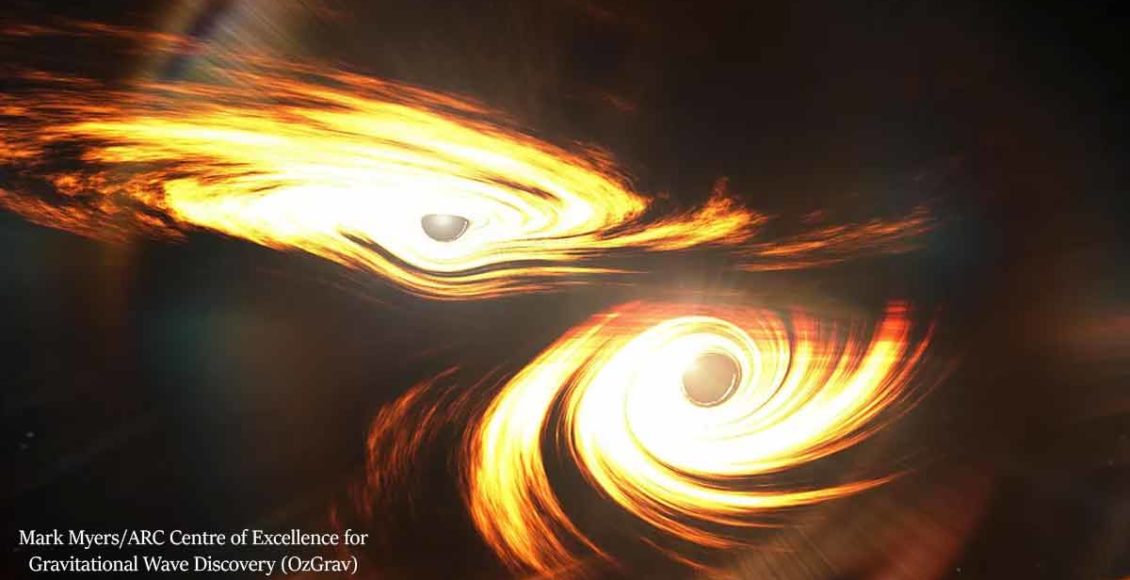Astronomers have detected signals from a long-ago, violent collision between two black holes:
- After colliding, they formed a black hole of a size that has never before been seen.
- Caltech professor of physics, Alex Weinstein, claims that ‘It’s the biggest bang since the Big Bang observed by humanity’.
- The collision occurred about 7 billion years ago but was only recently detected because it happened far away.
“In astrophysics, we’re always faced with surprises”
Alex Weinstein
Until the collision, scientists had only observed black holes in two sizes.
According to the Guardian, black holes have been seen in two general sizes. The ‘small’ ones are called stellar black holes and are formed when a star collapses; these black holes tend to be the size of relatively small cities. The other general size which is known to scientists is that of the supermassive black holes. Taking this further, the Guardian explains that they ‘are known to be millions, perhaps billions, of times more massive than our sun and around which entire galaxies revolve’.
The signal emitted by the collision was picked up by two detectors in May 2019.
The two black holes which collided were stellar (or ‘small’) black holes which were both relatively large; that is, ‘one was 66 times the mass of our sun and the other 85 times its mass’. The collision resulted in the creation of the first intermediate black hole known to scientists and it is reported to be 142 times the mass of the sun. NBC News explains that ‘lost in the collision was an enormous amount of energy in the form of a gravitational wave, a ripple in space that travels at the speed of light’. It was this wave that, scientists in the US and Europe detected a year ago. On Wednesday, September 2, scientists published the results they found after deciphering the signal in the Physical Review Letters and Astrophysical Journal Letters.
Scientists were able to hear the sound of the collision.
Since gravitational waves are picked up as audio signals by the detectors, researchers were able to hear the sound of the two black holes colliding. Caltech professor of physics, Alex Weinstein, described the sound as he said: ‘It just sounds like a thud. […] It really doesn’t sound like much on a speaker’. This cosmic event acts as a reminder that in the world of astrophysics, there are countless things that are yet to be discovered.



